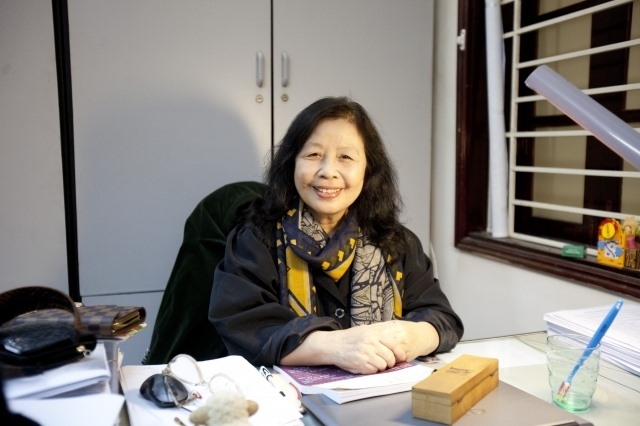 Life & Style
Life & Style

Lê Thị Minh Khuê’s new Việt Nam Writers Association Award winning short story collection is the writer’s 16th book, and it offers 14 stories about generosity, sympathy and love.
 |
Lê Thị Minh Khuê’s new Việt Nam Writers Association Award winning short story collection is the writer’s 16th book, and it offers 14 stories about generosity, sympathy and love.
Born in 1949 in Thanh Hóa Province to a family much affected by the land reform in north Viet Nam in early 1950s, she joined the anti-American war as a youth volunteer worker from 1969 to 1975. Afterward, she worked as a writer/reporter, and won a Writers Association award in 1987 and again in 2000 for the Best Short Story category.
Her 1969 short story collection Những Ngôi Sao Xa Xôi (Distant Stars) is part of the national 9th grade literature curriculum. The work was also printed in The Art of the Short Story collection by American Wadsworth Publishing Company.
She also has a full-length collection in English, The Stars, the Earth, the River, which won South Korean Byeong-ju Lee Award in 2008. Her work were printed by Swedish and Italian publish houses in 2008 and in 2010. Her short story collection Small Tragedies is among very few Vietnamese books to be translated into German.
Writer Khuê speaks about her work.
This is the third time you have won the Việt Nam Writers Association Award. How do you feel?
I’m really surprised. My book was nominated by Trẻ Publishers, who printed the work, but I didn’t know they nominated it. I didn’t find out until the book was named to the final round.
In these stories, I use a light-hearted and folksy style to comment on hot social news. If I said the book doesn’t satisfy me, I’d be lying. But like my other books, I think it would be better if I had the chance to make some adjustments.
If you had the chance, what would you want to change?
I would write more news with fewer implications. Take, for example, the story Thằng Tomy Về Chơi (Tomy Pays a Visit). There, I tried to convey many messages, such as war, separation and disappointment. I think a short story cannot cover everything.
You are seen as the "Queen of short stories". Do you agree? Does your work provide you a stable income?
Most importantly, a writer needs say something new in her new work. It is not purely entertainment. However, it is not easy to write for entertainment. I lack the skills to write entertaining works. I like literature works on mainstream subjects, but the subjects do not attract readers. However, how I write is my power.
I have a friend who calls my writing an intellectual response to social issues. I’m called the "Queen of short stories" by my friends for fun, because I almost write only short stories. Very few writers can earn money from royalties. I have many foreign colleagues who have to work as teachers or reporters to earn a living.
Do you think literature is your career?
It is my work, but not my career. I’ve had small successes with my work. I don’t expect much from literature in terms of readership. People have a lot of other things to do, so they rarely read literature. I will be glad if 100 readers read my new book, people--including my friends and relatives--who really love literature.
I’m grateful to readers who buy my book.
Literature is not changing anything. It was important in the past but not now. However, I like writing because it is my hobby. It is my way to express what I think.
But I think I could stop anytime. That I will stop is a certainty, because health and passion are essential conditions that are not always plentiful. I started writing when I was 17. At that time, I was in a military hospital and was very sad. I borrowed books and read a lot. Someone suggested I try to write. I began to write for Tiền Phong (Vanguard) newspaper.
Sometimes I cannot write for long periods of time. I take a break to refresh myself. It seems that I’m lazy, but I’m not. When I take a break, I’m still thinking, observing and brainstorming.
With all of your technology options, why still write by hand?
I don’t like using computers because handwriting always helps me have new ideas. I feel that writing by pen can help me control my thoughts. In fact, handwriting is very meaningful to me. I sometimes don’t know what to write when I sit at a table. But when I put pen to paper, I find out. — VNS